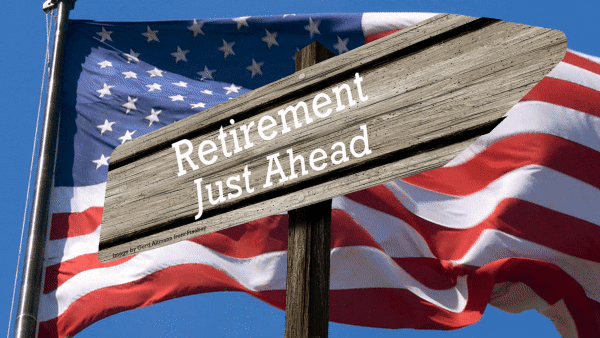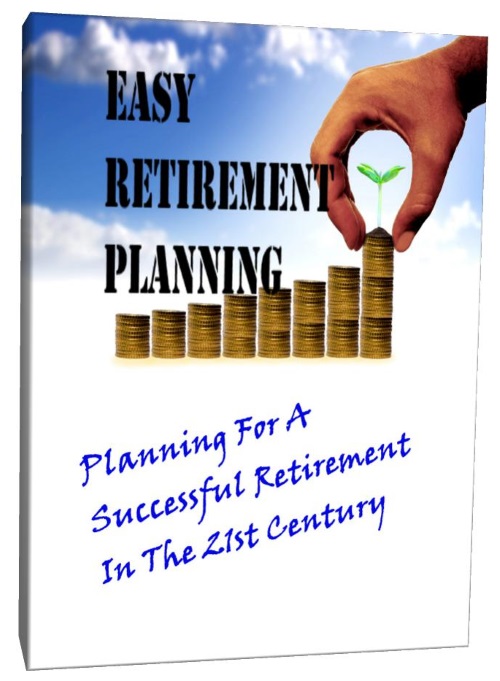THINGS TO CONSIDER
When you begin to think about your retirement, you need to set a few goals to begin with. They’ll probably be flexible, but the goals dictate the rest of your retirement plan.
How will you spend your time once you’re free of the daily trip to work every day? There are lots of options for every retiree. You need to pick the one that fits you best and one(s) that will keep you busy and help fill the void that not working will create.
Maybe you want to travel, start or continue a hobby, garden, play golf, spoil the grand-kids, or maybe climb a mountain. The possibilities are limitless since you’ll have a lot of free time.
Retirement doesn’t mean you should resign yourself to sitting around talking about your ailments or feeding the pigeons in some park like old people do. It should mean freedom to explore life and and look for some new horizons.
Dream big and then make those dreams come true. You’ve worked hard and you deserve a happy, successful retirement. The real problems will be turning off the work ethic that you’ve developed over your working lifetime.
Maybe you’ll get bored with not going to work every day. If this is the case, you might be happier working or volunteering once you retire. I know several retirees who’ve re-entered the work force to work their way out of boredom.
There are many places you can volunteer if you don’t relish the idea of working for money. Almost every volunteer organization is begging for help with the many activities and projects. But, a little extra cash might come in handy and many retirees have started a second or even a third career after retirement using their past experience and interests.
What about your health once you retire? This is one of two major concerns every retiree has. You should start planning right now for a healthier lifestyle. If you smoke, maybe you should stop. If you’re overweight, take measures to drop a few pounds.
Been putting off those medical check-ups? Now may be the perfect time to get these done. Proactively taking care of your health in your early years might help you get health insurance at a more reasonable rate when you get older.
It’s entirely your choice to start getting more exercise and healthy eating so you will be as healthy as possible in your older years. Make a commitment and learn how to become a healthier, more active person and you will reap the benefits now and later.
Another area that you might need to consider is friendships and family. A career sometimes doesn’t leave much time for cultivating friendships outside of the work arena and enjoying your family. Once you retire, the people you socialize with now may not be there for you when that time comes?
Try to make time for family and friends outside of work, even if it’s just a few hours a week. The older you get, the harder it is to find and make new friends. If you ignore your family, they might not be there for you when you get older and feel you want to spend more time with them.
So, in addition to investing and saving money for your retirement, now you need to make some additional plans. You need to plan how you might want to spend your retirement, where you might want to spend it, how to be healthy enough to enjoy it, and how to keep your family and friends around to help you enjoy it.
This takes retirement planning to a whole new level. Retirement shouldn’t be considered an ending, it should just be a continuation of living. Retirement is a commencement to the next phase of your life.
It deserves a plan.
Of course, money is important when you’re thinking about retirement. Your income may decrease significantly when you don’t have a paycheck coming in week to week, but you still have bills to pay and things that you want to do that will require money.
When you begin to plan for your retirement, ask yourself the following questions:
-
-
-
- Do you have a pension or retirement plan at your place of employment and are you eligible? Some companies don’t offer retirement or pension plans and some jobs within companies are not eligible for these plans even if they are offered.
- If you have participated in an employer sponsored savings plan, how much will your pension or retirement plan be worth when you retire?This information is necessary so you can decide if you need to make additional savings such as an IRA to supplement your retirement benefits when you decide to retire.
- If your employer provides a retirement plan, what happens to it if you change jobs? Your employer can tell you if your retirement plan can be rolled over into an IRA, cashed in, or left with the company if you should leave the company. You will need to decide which is best for you to do.
- If you retire early, what happens to your retirement plan with your employer? Your employer can tell you when you are vested with the company and what you can expect to receive in the way of retirement benefits when you decide to retire.
- Will pension benefits be reduced by Social Security? In some instances, your retirement benefit could be reduced by the amount of Social Security you draw. Discuss this with your employer to see if this happens with your pension.
- Look at where your finances are right now. Gather all your financial information into one place and go over it to see what you have and what you need.Look at your benefit plans, social security, veteran’s benefits, and so on. Make a detailed list of your assets, such as real estate and investments.
Next list all your liabilities, such as debts, loans, child support, and alimony.
-
-
Retirement planning gives you the opportunity to look into the future and make your best guess about how much money you’ll need to live a comfortable and satisfying life.

